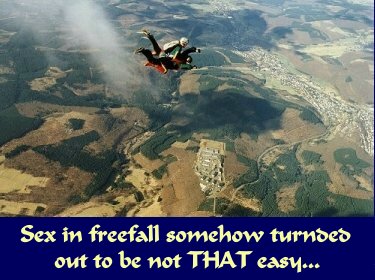Airborne soldiers are -by textbook definition- elite.
Indeed the international heritage of the Airborne soldier makes it almost impossible to discuss elite soldiers without mentioning them. The direct lineage of Airborne soldiers -from one generation to another- reads like a
who's who of great military units. It is this bloodline that forever enshrines the Airborne soldier as elite. A tiny excerpt of their lineage:
- First paratroopers: 1927 Folgore Italian commandos (a Division-strength unit resisting against 6 enemy divisions, and earning their respect as a result)
- No. 11 SAS, operation Colossus- First British paratroop use (http://en.wikipedia.org/wiki/Operation_Colossus), the operation that put the "AIR" in Special Air Service
- Operation Biting http://en.wikipedia.org/wiki/Operation_Biting (116 man force, and the critical game-changing discovery that CHAFF could defeat German RADAR)
- Operation Avalanche, the successful Allied landing on Italy. The 82nd Airborne Div, the 504th & 505th & 509th Parachute Infantry Regiments supported a huge conventional allied force; responsible for cutting off German forces south of Salerno, and later repelling the counterattack of 6 German divisions- an action that ultimately saw Hitler withdraw Rommel from Southern Italy- an enormous victory- impossible to achieve without the support of the Airborne forces.
- Operation Junction City in Vietnam- the only major Airborne drop throughout the conflict- is frequently used by critics of the war as an example of what American forces were capable of doing when freed from the bureaucratic entanglements of Washington, and permitted to fight unhindered. The massive search-and-destroy mission showed complete dominance by Airborne units until they were withdrawn.
- Recent operations in Grenada, Panama, Kosovo, Yugoslavia, and Kandahar Afghanistan all have demonstrated that a superb light infantry with Airborne capabilities could utterly dominate the battlefield using the doctrine of vertical envelopement.
The heritage and lineage of the modern Airborne soldier is one born out of great victories- making them
better than the adversaries they faced- one of the key criteria which would need to be met in order for the term "elite" to be applied. Another key criteria: Pedigree- a bloodline. Not many forces have a more robust repertoire and famed history than the Airborne. Chances are, if the fight was important, somewhere in there sooner or later, there were either Airborne units or Airborne-trained soldiers. The third key criteria: the status of being a small group within a much larger society. Airborne make up a small percentage of the entire US military- as they do in the forces of any other nation's military. Relatively speaking they are small, thus satisfying the third generally accepted metric for what constitutes an elite organization.
Airborne troops are responsible for key victories in some of the most dangerous, profound, and militarily significant battles in recent times. They deploy faster, farther, and deeper than conventional forces, often with sparse equipment and almost no support at times. Commanders in many conflicts have placed the entire outcome of given battles in the hands of Airborne forces. What was dreamt up in theory textbooks was played out using Airborne troopers. When friendly lines were failing or collapsing, it was Airborne troops that were used to reinforce them.
If that isn't elite, I don't know what is.

